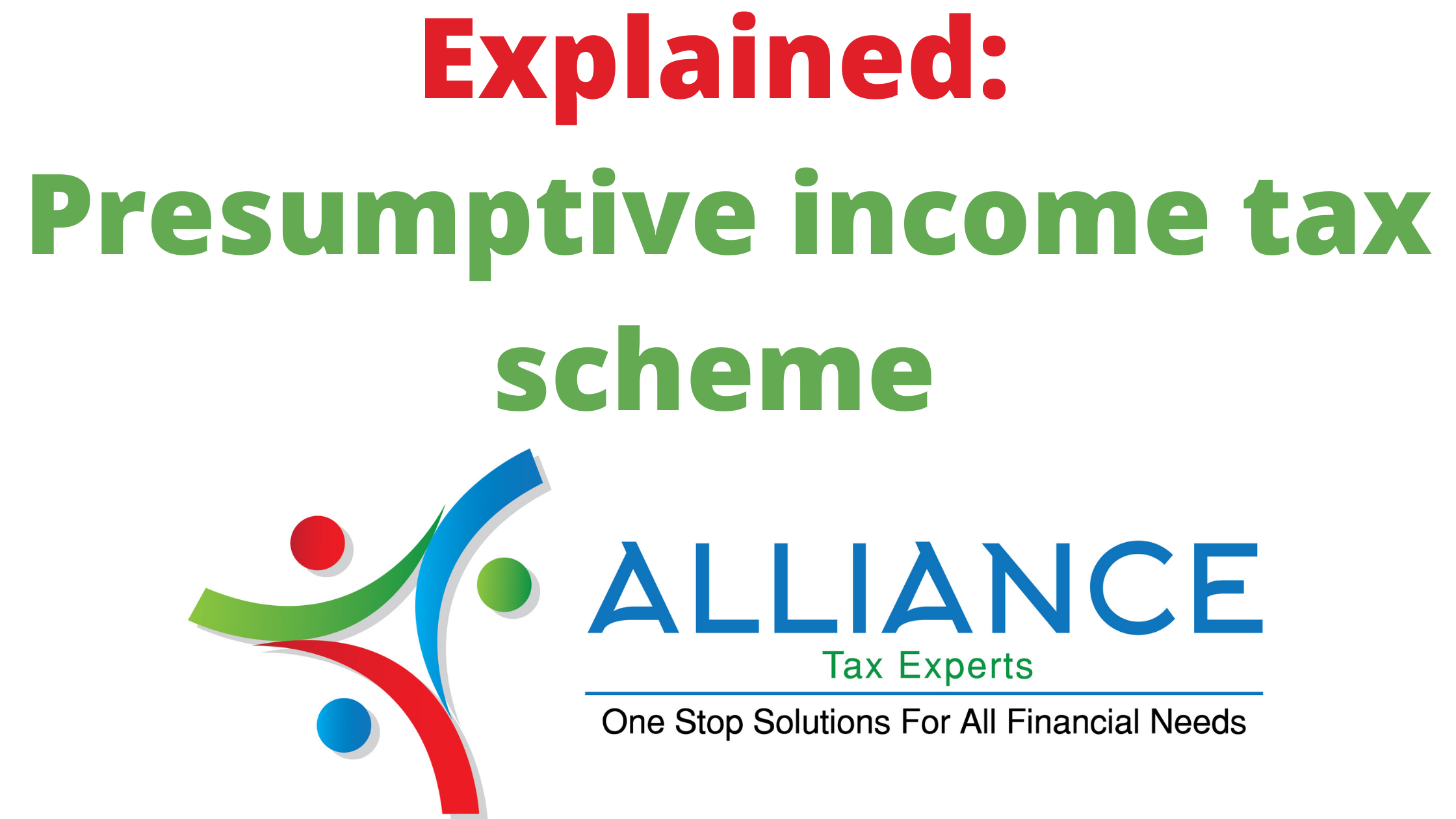
28 Oct
Presumptive income tax scheme
Explained: Presumptive income
tax scheme and why it helps those who find it difficult and expensive to maintain
books of account
Once
you file your income under the Presumptive tax plan, you will have to follow
the same procedure for the next five years. If a taxpayer disqualifies within
one year, she will not be allowed to file returns under that for the next five
years.
To
make it easier for small businesses and professionals to pay taxes, and
Presumptive taxation scheme was introduced. Under this plan, you do not need to
keep books of accounts. Instead, if your turnover falls below a certain
threshold, your income is calculated as an estimate. Here are the details.
What
is a Presumptive tax plan?
According
to the Income Tax Act, 1961, traders and professionals must keep regular
ledgers. They should audit their accounts and file an income tax return (ITR).
However, to provide relief to small taxpayers, the Presumptive Taxation Scheme
(PTS) was put together.
Santosh
Patil, a Director at Alliance Tax Experts says, "The relief from keeping
account books was a great relief to small taxpayers who found it difficult to
maintain and incur additional costs."
The
person who adopts this scheme to file the return can declare the income at the
prescribed rate and in return, is freed from the tedious task of maintaining
the books of accounts and auditing the accounts. However, to calculate
turnover, one still needs to keep a few books of accounts. "They no longer
need to maintain credit, cash and bank accounts," says Santosh.
Who
can choose the estimated taxation plan?
The
scheme is defined under three different sections of the Income-tax Act —44AD,
44ADA and 44AE— according to occupation and type of business. "The
framework of the proposed tax assessment scheme initially worked for taxpayers
engaged in a specified business (under Section 44AD) or truck driving, leasing
or renting (Section 44AE). Santosh says.
Section
44AD of the Act applies to persons engaged in any business with a turnover or
total receipts of more than Rs.2 crores.
Similarly,
any business (such as legal, accounting, medical, architectural, etc.) or
partnership firm (other than LLP) and a company with a receipt of less than
Rs.50 lakhs. Santosh Patil explains that the benefit of Section 44AE of the Act
can be availed by anyone who is engaged in the business of operating, renting
or renting freight vehicles (no more than 10 freight vehicles at any time of
the year),
How is
the income under PTS calculated?
As
per the name of the scheme, the income under PTS is calculated assuming. For a
person accepting Section 44AD (Commercial), the income is calculated on an
estimated basis at the rate of 8 per cent of the turnover or total receipt of
the eligible business for the year.
However,
to give a boost to the digital transactions department, 44AD has been revised
since the assessment year of 2017-18 so that the turnover / total receipts will
be calculated at the rate of 6 per cent instead of 8 per cent. Use of
electronic clearing system by account recipient check or account recipient bank
draft or bank account or another such electronic mode.
Similarly,
if a business (under section 44ADA) wishes to accept PTS, the income will be
calculated assuming, that is, at the rate of 50 per cent of the total income of
the business. However, both traders and professionals can voluntarily disclose
their business or business income in excess of a fixed percentage even if they
file their returns under PTS.
Advantages
The
main advantage of PTS is that taxpayers are not required to keep complete books
of accounts. Also, in general, one has to pay advance tax in four instalments,
but, under section 44AD / 44ADA, the person opting for the estimated taxation
scheme is liable to pay the full amount of advance tax in one instalment on or
before March 15.
Factors
to consider before choosing PTS
Once
you file your income under PTS, you will have to follow the same procedure for
the next five years. "If a taxpayer fails to do so within a year, he will
not be allowed to file a return under PTS for the next five years and if the
income exceeds the maximum amount, the accounts must also be audited that year.
It is not taxed," says Santosh.
Analyze
this provision before claiming the benefit of this clause.
Santosh
says it is important to use the correct income tax form when filing your tax
return through PTS. You need to choose between ITR Forms 3 and 4. Using the
wrong form invalidates your returns.
#itr #tax #taxation #alliancetaxexperts #ca #taxes #tax
#taxseason #accounting #business #incometax #smallbusiness #entrepreneur
#taxpreparer #bookkeeping #finance #money #taxrefund #accountant #irs
#taxreturn #taxpreparation #payroll #taxprofessional #cpa #businessowner #covid
#taxprep #taxtips #businesstaxes #taxplanning #taxtime #financialfreedom
#realestate #bhfyp